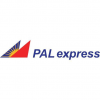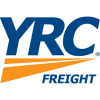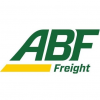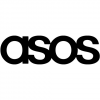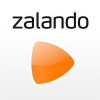PAL Express tracking packages and shipments
Keep track of PAL Express parcels and shipments with our free service! All you need to do to track your parcel, is to enter the tracking number, and then the service will keep track of your parcel’s location in real time.
How do I track my PAL Express parcel with 100Parcels.com?
- Find out the tracking number of your parcel;
- Enter the tracking number of your parcel in the field at the top of the page;
- Wait until the service checks the parcel data, it will not take long;
- View the search results and share them with your friends via social networking;
- If you enter your email address, we can notify you automatically of changes to the status of your parcel.
PAL Express - Tracking number format
- PAL## *** *** *** * YQ
# - letter; * - digit; ! - letter or digit
PAL Express - information about carrier
PAL Express, legally Air Philippines Corporation and formerly branded as Air Philippines and Airphil Express, is an airline under the ownership of Philippine Airlines. It acts as BUDDY's domestic department, with services from Manila, Cebu, Davao and Zamboanga.
The airline has actually been re-branded a variety of times, initially as Air Philippines, then Airphil Express, and is now referred to as PAL Express. After a series of monetary losses, Air Philippines stopped operations up until it was obtained by investors from Philippine Airlines. After the acquisition, the airline company was re-launched as PAL Express, running some routes and slot tasks of its sibling business Philippine Airlines up until its management chose to re-brand the carrier as a spending plan airline called Airphil Express. In March 2013, the business's CEO revealed that the name would be gone back to PAL Express. As a codeshare partner of Philippine Airlines, PAL Express runs as a full-service carrier within an affordable model.
PAL Express is Philippine Airlines' answer to Cebu Pacific's supremacy in the low-cost travel market in the Philippines. PAL Express currently holds the no. 3 position amongst Philippine-based airline companies, with a 19% market share.
Starts as Air Philippines (1995-1999).
Air Philippines was integrated on February 13, 1995, with the base of operations being the previous Naval Air Station Cubi Point. Flight operations started on February 1, 1996, with a Boeing 737-200 in between Subic Bay, Iloilo and Zamboanga. In 1996 6 NAMC YS-11 and four Boeing 737-200 aircraft were gotten by the business. In 1997 an extra one Boeing 737-200 was acquired. In this exact same year, the airline brought over 675,000 travelers and over 773,000 in 1998. In September 1998 the airline company was momentarily grounded by the Philippine Air Transportation Office but was reactivated when U-Land accepted purchase a stake.
Lucio Tan Group takeover (1999-2008).
When Lucio Tan Group took over management of the airline company, it was in 1999. In March 1999, Air Philippines was granted approval to run international services to Hong Kong, Japan, South Korea, Taiwan and the USA. In May 2001 two Boeing 737-300 aircraft were provided. In mid-2002, charter flights were begun with Subic Bay and Laoag City to Hong Kong. Guest numbers brought increased to nearly 881,000 in 2002. In July 2004 charter flights started from Subic Bay to Guangzhou.
Air Philippines significantly increased ties with Philippine Airlines (PAL), consisting of the combining of frequent flier plans, schedules, and ticket sales. Air Philippines likewise moved into the PAL terminal at the Ninoy Aquino International Airport (Manila). Some of PAL's major stock owners are likewise owners of Air Philippines. Air Philippines officially stopped to be part of Philippine Airlines' frequent flier program, "Mabuhay Miles", on October 1, 2007. Air Philippines has actually said that they selected to back out of the Mabuhay Miles program to benefit their guests, so rather than flying various flights to wait and get miles to a specific point to receive rewards, passengers can benefit with lower fares and more discounts with quicker bonus offers, much more like today's modern-day low-priced airline company.
PAL Express launch (2008-2010).
On April 10, 2008, Philippine Airlines revealed an order for aircraft for the PAL Express fleet. It included aircraft from the Bombardier Q household, including three from the Q300 series and 6 from the Q400 series, manufactured by Bombardier Aerospace in an offer valued at $150 million. FRIEND revealed on April 13 that the brand-new fleet would be based generally in Cebu City to serve local routes, while flights from Manila would also be released.
PAL Express was unveiled on April 14, 2008. The airline company primarily flies intra-regional routes from its Cebu hub to the Visayas and Mindanao islands, as well as secondary paths to smaller airports in island provinces that are unable to accommodate PAL's mainline jet airplane. On May 5, 2008, PAL Express began operations by launching flights to Malay. The airline on the same day announced it would serve 22 inter-island paths, including some provincial points that lacked air service. Flights out of Cebu City commenced on May 19, 2008. On July 1, 2009, PAL Express flights ended up being qualified for Mabuhay Miles. After Air Philippines ceased operations on August 31, 2009, they transferred all their flights to PAL Express.
Rebranding to Airphil Express (2010-2012).
PAL Express was rebranded as Airphil Express on March 28, 2010. The airline company brought back jet service to Iloilo, Bacolod, Puerto Princesa and Cagayan de Oro, making use of Airbus A320 aircraft flying under the Airphil Express banner on March 28, 2010. The airline consequently operated 8 Bombardier Aerospace turboprop airplane and 2 new Airbus A320s, all of which were former Philippine Airlines aircraft.
In January and early February 2012, GE Capital Aviation Services Limited (GECAS) revealed the shipment of three new Airbus A320 aircraft to Airphil Express to help the provider expand its fleet. On October 28, 2012, Airphil Express resumed "Mabuhay Miles" for a traveler to earn and redeem their miles on any Airphil Express and Philippine Airlines.
Reversion to PAL Express and codeshare with PAL (2014-present).
In the first quarter of 2013, Airphil Express revealed its new path from Zamboanga to Sandakan, Malaysia. In May 2013, PAL Express was required to cancel flights due to the 2013 Lahad Datu standoff. On March 15, 2013, Airphil Express reverted its name to PAL Express utilizing the familiar "sunriser" PAL livery and logo on its tail and fuselage while preserving its organisation name as Air Philippines Corporation.
As of March 2014, PAL Express began bring the brand name Philippine Airlines through a cooperative arrangement with PAL. This technique is meant to harmonize the 2 providers in order to make them more competitive, ensure leadership and exceptional core services, and enhance the effectiveness and success of both providers.
In 2016, the airline company signed a letter of intent with Bombardier for as much as 12 Bombardier Dash 8-Q400 airplane in a two-class 86-seat configuration. On December 16, 2016, PAL Express started its Caticlan service from its Pampanga center. This path operation was intended to decongest their Manila hub.
